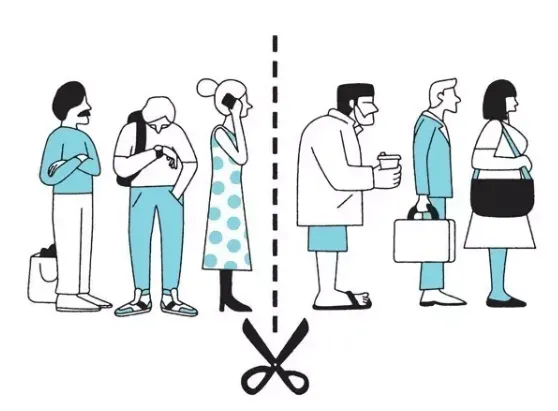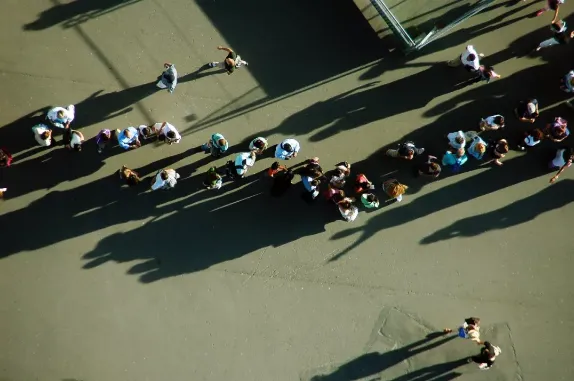Waiting for queuing is the pain that modern society has. David Andrews' book "Why are other teams always ranked faster?" Said,
The ancient people did not line up very much, but the industrial revolution synchronized the schedule of the workers, so lunch and dinner time were swallowed up by the queue.

"Go to the cafeteria to eat"
Given that Americans waste a total of tens of billions of hours in the queue each year, it's no wonder that some people try to jump in the queue, and some people hate the queue. However, it is really possible to successfully jump into the queue without having to find a pump.
Below, the social sciences will provide you with some relevant skills.
01 - First, choose the right team.
In a big event that happened once in a lifetime—for example, the Chicago Cubs scored in the World Series, it was almost impossible to cut the queue. But in the common scene of the senior security team, people are likely to let you jump in the queue.
Probably because they feel that they may need similar help on a certain day. According to game theory, the researchers judge what kind of situation the queue can be allowed for the society.
They found that those who might only queue this time had little tolerance for the queue, but if they were accustomed to the queue, people would let those who claimed to be in a hurry or could finish it soon.
02 - Secondly, finding an excuse is helpful for a successful queue, but it doesn't need to drip.
In a study that was cited many times, the experimenter tried to use one of three reasons to insert the team in front of the copier. One is a short and polite request, there is no rationality -
"Sorry, I have five pages. Can I use a copier first?" - This request allowed them to successfully insert 60% of the team. And with their very anxious statement, the success rate can reach 94%.
“Can I use a copier because I need to make a copy?” It is almost equally effective, although this reason seems to be vulnerable.
03 - In addition, bribery can also achieve the goal, and may not even require you to really save money.
In one study, a hidden identity researcher told the queue that if they could get him to jump in, he would give them money. Most people agree with his request, but the strange thing is that most of them refuse to take money.
They agree that it is not greed for people to jump in the queue, but because the act of bribery itself proves that the person who wants to cut the queue has no choice.

"cutting the queue"
According to a study by psychologist Stanley Milgram, the person who was directly cut into the queue often decides whether the cut-off behavior will be allowed.
If that person does not object, then other queues will tend to remain quiet.
The experiment also found that two people who cut the team at the same time were more irritating than a single team. So if you want to jump in, please go alone.
"Remember: The degree of tolerance for the behavior of the cut-off will vary from culture to culture."
A survey of expatriates living in Spain shows that there are many country differences in queuing rules. An Irish respondent said with enthusiasm: "They said, ‘I just want to ask a small question,’
Then I rushed to the counter... I was blown up. A German man described an supermarket customer angrily: "A woman squeezes in front of me from the right and puts her things on the counter."
She pointed to another woman who had just paid the money and said, ‘No, it’s okay, we are together... It seems that this kind of thing is allowed in Spain. It's incredible. ”
In the United States, the most serious mistake when cutting the queue was to pretend that he didn't jump. Like members of any social group, queuers want people to abide by social customs. If you can,
Of course, we don't want to wait in line for it, but if we do that, it will be a mess. So if you have to jump in, just politely ask. This can not only maintain the social contract, but it is also useful.

Then in your country! What reason will someone use to jump in the queue?